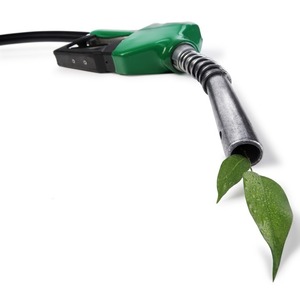Michigan bill aims to create clean fuel, clean energy standards

April 13, 2023
BY Erin Krueger
Michigan state democrats, led by Senate Majority Floor Leader Sam Singh and Sen. Sue Shink, on April 12 introduced the Clean Energy Future Plan, a bill package that aims to implement a wide range of clean energy provisions, including a clean fuel standard (CFS) and a clean energy standard.
The CFS program created by the legislation would aim to reduce the carbon intensity of the state’s transportation fuels by 25 percent by the end of 2035.
Advertisement
The legislative package would also set a goal to phase out coal-fired electricity generating plants by 2030 and require utilities to make progress toward the elimination of greenhouse (GHG) emissions from power generation by 2035. It would also establish a standard requiring 100 percent clean energy by 2035.
Other components of the package include provisions to encourage utilities to become more energy efficient, expand the purview of the Michigan Public Service Commission, encourage farmers to rent land for solar operations, and support the decarbonization of homes and businesses. Additional bills are expected to be added to the package, including one to promote the purchase and use of electric vehicles.
Clean Fuels Michigan has spoken out in support of the Clean Energy Future Plan, noting that the Michigan Clean Fuel Standard Coalition will work with legislature to implement a CFS that is technology and fuel neutral, helps catalyze innovation in low carbon fuels, and rewards climate-smart agricultural practices.
Advertisement
The Renewable Fuels Association is also welcoming the bill’s CFS provision. “We applaud Senator Singh for introducing this legislation, which creates a rational and sustainable path toward decarbonization of the Michigan transportation sector,” said Geoff Cooper, president and CEO of the RFA. “RFA believes a Clean Fuel Standard based on sound science and technology-neutral principles can quickly reduce carbon emissions, enhance energy security and stability, lower fuel prices for consumers, and create new value-added market opportunities for farmers. We support the legislation’s adoption of the Argonne GREET model for lifecycle analysis, and we agree that farmers should be credited for voluntary practices that reduce emissions on the farm. As the home of a vibrant agriculture industry and the birthplace of the U.S. automotive industry, Michigan has a special role to play as a national leader on clean fuels policy. We are proud to work with Clean Fuels Michigan and other members of the of the Michigan CFS Coalition to promote and advance this important legislation.”
Related Stories
Reps. Mike Flood, R-Neb., and Troy A. Carter, Sr., D-La., on July 21 reintroduced the SAF Information Act. The bill directs the U.S. EIA to more explicitly include SAF data in its weekly and monthly reports.
The U.S Department of Energy Bioenergy Technologies Office, in partnership with the Algae Foundation and NREL, on July 21 announced the grand champion and top four winning teams of the 2023 - 2025 U.S. DOE AlgaePrize Competition.
The European Commission on July 18 announced its investigation into biodiesel imports from China is now complete and did not confirm the existence of fraud. The commission will take action, however, to address some systemic weaknesses it identified.
Kintetsu World Express Inc. has signed an additional agreement with Hong Kong, China-based Cathay Pacific Airways for the use of sustainable aviation fuel (SAF). The agreement expands a three-year partnership between the two companies.
On July 18, U.S. EPA announced a reduction in force (RIF) as the agency continues its comprehensive restructuring efforts. With organizational improvements, EPA is delivering $748.8 million in savings.
Upcoming Events










